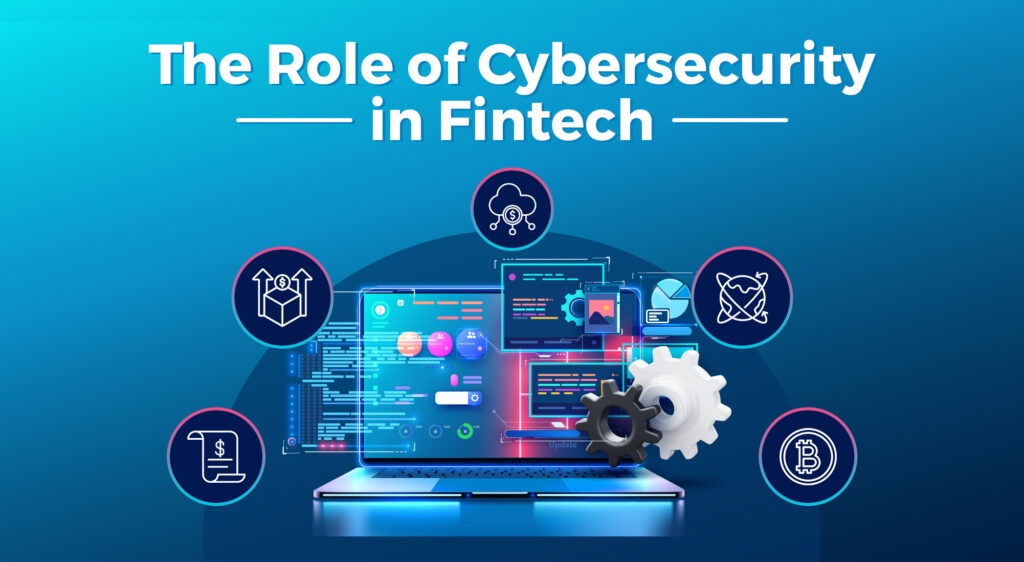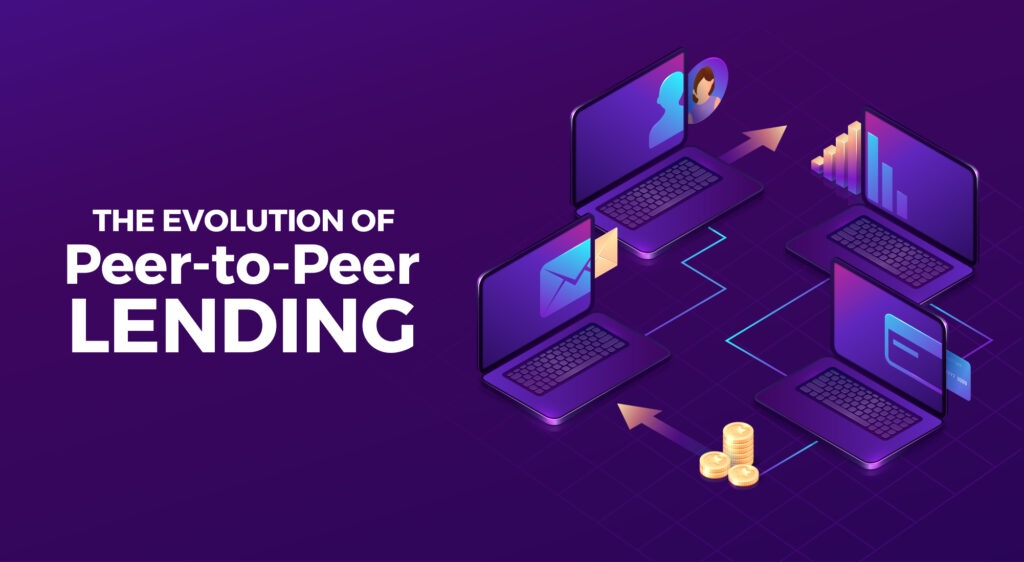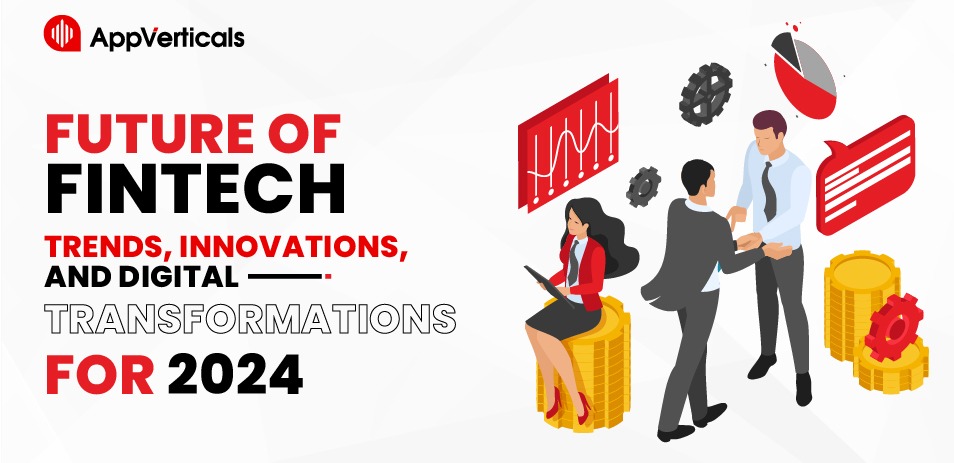The fintech industry is said to be developing very fast, and this is changing the provision and consumption of financial services worldwide. Fintech has been stated to change in terms of market presence, consumption, and development by 2024 due to technological developments, shifts in consumers’ preferences, and the need for financial inclusion.
Here, you shall be informed on some of the modern trends in Fintech, the future of financial services, and how Fintech players are adopting future trends as the world adopts more of the current technological advancements.
The Rise of Artificial Intelligence and Machine Learning in Fintech
It may not be possible to talk of fintech without using the terms AI and ML, even though they are essential features in the industry. These technologies enhance customers’ value propositions, mitigate risks, and enhance operations. AI/ML for use in financial services implementation is currently being used in the following: AI/ML chat bots, Auto financial planning, and an AI/ ML fraud protection system.
- Blockchain Technology: Revolutionizing Financial Transactions
Thus, in this mission, the applications of blockchain have transformed the financial sector through the implementation of utter transparency, security, and efficiency. It has changed how transactions are done, from remittance payments that cross borders to contracting systems that employ professional intelligence.
- The Emergence of Digital-Only Banks
For instance, new-generation institutions like digital-only banks or what is known as neobanks have been quite common in the past years. These are young core banks that are actually virtual banks and do not have physical offices. There is, therefore, an increased tendency towards digital banking, and this has challenged traditional banks, which now face stiff competition from such fintech players.
The Impact of Fintech on Financial Inclusion
Another opportunity that fintech possesses is the chance to increase financial inclusion. As fintech players use mobile technology, every deserving population across the globe is getting the requisite financial facilities. From micro-lending to m wallets, these technologies are enabling individuals and micro businesses, particularly in the developing world.
- The Future of Payments: Contactless and Beyond
As of now, the payments industry is in the middle of a revolution caused by touch-activated payments and cryptocurrencies. Due to constant pressure from consumers who wish to pay for goods and services faster and more securely, a number of fintech business solutions and products, such as biometric authentication, QR code payments, and P2P payments, are emerging.
- Regtech: Navigating the Complex Regulatory Landscape
There is no doubt that as the fintech sector continues to grow, the legal environment is, in many ways, becoming more diverse and often a good deal more opaque. Regulation technology, also known as regtech, is on the rise today, and it is perceived to be the solution for financial institutions to be on par with regulatory needs. Every regtech solution reduces the burden of regulatory reporting through the combination of compliance automation and artificial intelligence and increases the level of transparency.
Want modern fintech advances that will help your company in advancements in fintech?
Check these innovations and start changing your financial strategies right now with Appverticals.
Yes Let’s goFintech Marketing Trends: Personalization and Data-Driven Strategies

Marketing in the fintech industry is evolving with a large emphasis placed on analysis and a focus on the target customer. Currently, there is a high level of adoption of customer data among fintech firms in the marketing of their products with the aim of enhancing the engagement of their clients. Thus, in 2024, there will be increased creativity in the marketing strategies employed with aspects like the application of the AI feature in producing more personalized marketing strategies and the use of omnichannel marketing strategies.
- Innovations in Financial Management: The Role of Fintech Apps
Fintech apps are allegedly changing financial management services, as several applications are available to help users manage their financial resources properly. From smart applications that can track an individual’s expenditure to investment platforms, such developments are providing consumers with a voice for their money management. Silicon Valley’s ability to consistently surprise consumers with the next shiny object also means that new features, such as artificial intelligence-driven budgeting and continuous spending behavior detection, are already coming.
- The Growth of Fintech App Development Services
The need for fintech app development solutions is increasing with the trend of organizations aiming to offer of unique financial functions and services. When it comes to creating new approaches to digital solutions, such as a new digital wallet, an online P2P lending marketplace, or a cryptocurrency exchange, fintech app development services are the way out and opportunity to transform a vision into reality. For the year 2024, this area is going to grow even more because of the introduction of new mobile technologies and better user experience design.
The Role of Cybersecurity in Fintech

In the finance sector, fintech companies deal with huge volumes of customers’ personal financial data, so cybersecurity is crucial. Threats of cybercrimes also battle the overall banking system, especially with the considerate use of online banking services. As a consequence, fintech firms are increasingly spending their money on cybersecurity solutions and tools like encryption, MFA, AI-based threat detection mechanisms, etc., to safeguard their customers’ data.
- Sustainable Finance: The Rise of Green Fintech
Innovation is gradually increasing and extending its coverage in the fintech business, with the emergence of such subcategories as green fintech, which identifies environmentally friendly financial solutions. Among these are sustainable investing products, such as sustainable investment platforms for investing sustainably, together with carbon footprint tracking applications that fulfill the new global trends in sustainable financing.
- The Role of Big Data in Fintech Innovation
The adoption of big data as a data source has been noteworthy in helping fintech firms gain insights into areas like customer behavior, market opportunities, and risk factors. Fintech can deliver accurate predictions, improve its services, and even develop other products that are desired within the market.
Find out how the modern fintech advances will help your company.
Check these innovations and start changing your financial strategies right now with Appverticals.
Yes Let’s goThe Future of Wealth Management: Robo-Advisors and Beyond
By providing personalized financial advice related to investment portfolios operating on algorithms, the Robo-advisors became innovative low-cost substitutes for traditional wealth management consultancies. These platforms are making investment services more available and important to people’s lives as they help people increase their money. In the future, as there is growth in artificial intelligence machine learning, there is anticipation of high-end robo-advisors that data will influence.
- Fintech’s Role in Small Business Growth
Currently, fintech is also emerging as an enabler of small business development by offering funding solutions, payment processing, and financial tools. From digital lending sources from online-only lenders to invoicing solutions, financial technology is ensuring that SMBs succeed in the current economy.
- The Growing Importance of Customer Experience in Fintech
Because of the above competition fight, customer experience is becoming a significant strategic tool being applied in the fintech sector as customers struggle to be won over. Some of the approaches that have been adopted by Fintech firms include: Using the example above, Fintech firms are ensuring that they offer effortless experiences across virtual channels, thus catering to the needs of millennial consumers.
The Evolution of Peer-to-Peer Lending

Online platforms that bring borrowers directly to lenders have revoked banking’s traditional hold on lending by funding it through personal-to-person means. These platforms operate at comparatively lower interest rates and are more available for borrowers while offering new ventures to lenders. It is for this reason that as the implementation of Financial Technologies advances, P2P lending is expected to increase, with pertinent associated innovations such as credit scoring by Artificial Intelligence and app-based borrowing through the use of Distributed Ledger Technology.
- The Role of Fintech in the Gig Economy
The gig economy is growing fast, and financial technology firms are developing products that cater to the financial requirements of individuals in the gig economy. Instant payment services or apps that help gig workers balance their incomes now exist to support gig workers better. Consequently, by 2024, there will be even more innovative fintech products that target the gig economy and more acquisitions of fintech startups by gig economy platforms and companies.
- The Future of Digital Identity Verification
The use of technologies aimed at verifying identities is growing significantly due to the popularity of fintech businesses wanting to secure their services and comply with the law. Integrating biometric authentication, using blockchain in identity solutions, and using ID verification based on AI are some of the ways in which fintech firms are increasing security and simplifying the procedures of onboarding.
The Role of Fintech in Personal Finance Education
Thus, fintech organizations are assuming a central role as leaders in offering financial literacy and education services. From spending tracking apps to free tutorials, such platforms are helping the consumer become their financial planner. From it, it can be predicted that in 2024, active development of further innovations in this area will be continued, and a focus on users of different ages and an approach to making the financial education function more interesting for users will be identified.
- The Future of Cross-Border Payments
Due to fintech interventions, international money transfers are also moving a step closer to being seamless, cheaper, and more liberally provided. Cross-border payment is another area where advancements in blockchain technology, digital currencies, and real-time payment systems are equally playing their part.
- The Growing Role of Fintech in ESG Investing
There is a new trend of sustainable investment, known technically as ESG, and fintech companies can look for solutions to it. Even though some of these advances have been in existence for a few years now, new fintech companies are helping investors make sustainable investment choices by opening up access to these tools.
The Impact of 5G on Fintech Innovation

The introduction of 5G technology in the country is also expected to have positive impacts on the enhancement of fintech activities as it results in enhanced connectivity and, thus, improved performance of mobile financial services. From trading with live data feeds’ analysis toward utilizing 5G in banking with virtual reality, fintech opportunities expand. Therefore, in the calendar year 2024, one can also imagine observing the universal implementation of the 5G network and unveiling new kinds of fintech products that would employ this network.
- The Future of WealthTech: Innovations in Investment Management
Fintech is a rapidly evolving sector that has received a lot of attention recently. For now, it is being called WealthTech. In many areas of investment, WealthTech solutions define, enable, perfect, and individualize investment decisions. It will not be surprising if we continue to see more advancement in WealthTech in the year 2024, emphasizing user experience, efficient investment management, and, most importantly, providing people with the opportunity to generate wealth.
- The Role of Fintech in Enhancing Financial Well-being
It is becoming increasingly popular in the fintech sector to create an organization’s mission and vision statement to contribute to people’s well-being by giving them tools to manage their money. These solutions include savings applications and financial education, among others, which help individuals address their financial issues and achieve their life goals.
- The Impact of Open Banking on Fintech Innovation
Open banking is the practice of permitting a third party to access the customer’s financial data, and it is fast transforming the market. This has led to many innovations in Fintech solutions to offer clients more open, selected, and convenient Financial Services.
The Future of Fintech: Predictions for 2024 and Beyond
Looking forward, it is evident that fintech will remain a key driver of change in the financial services industry. We may also continue to witness new developments in artificial intelligence, blockchain technology, and digital currencies, so there will be more emergence of digital-only banks and more growth and expansion in fintech applications and service apps. I have highlighted the fact that fintech has a promising future with many opportunities for evolution and development.
Conclusion: Addressing the Future of Fintech
The fintech sector is the most dynamic and is growing increasingly with time to satisfy current and future demands. For fintech companies to continue to thrive as we transition through 2024, they must embrace emerging trends in the industry, adopt innovations, and put customer experience at the forefront. Thus, they are willing to explore new opportunities, facilitate financial inclusion, and influence the evolution of the financial services market.








